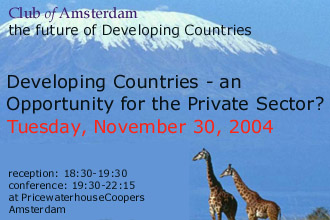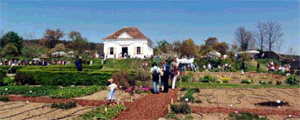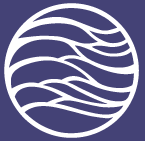
Ton Dietz about the future of Developing Countries

Ton Dietz, Professor of Human Geography, University of Amsterdam, Scientific Director, Netherlands Research School for Resource Studies for Development, CERES
| Development: an obsolete illusion or obvious challenges for the new century? The UN community, the OECD and the Bretton Woods Institutes have all joined to boost the so-called Millennium Development Goals to be attained in the year 2015. Many of the world’s bilateral donor countries have also joined these pledges to confront poverty, illiteracy, bad health, unsustainable environmental practices, and bad governance practices worldwide. The Netherlands is among them, focusing on priority themes (education, reproductive health, hiv/aids, and water & environment) and on a limited number of target countries. After the ‘lost development decade of the 1990s’, the global development industry succeeded to get a new momentum, although current global levels of development aid stagnate around 30 billion US$ per annum (global remittances of international migrants alone are more than 100 billion US$ now), and the debt levels of many poor countries remain very high. It is evident that the concrete Millennium Development Goals will not be reached by 2015 and one can wonder if this current ‘momentum’ is only the last breath of a dying age of obsolete illusions of ‘progress’, ‘modernity’, and ‘global responsibility’. Words are important here. The words ‘development’, and ‘developing countries’ suggest a world-wide process of steady improvement of living standards, fuelled by technological improvements, and by economic, political, and maybe even cultural globalisation, with global corporations as key players in this process of ‘positive change’. However, if we look at the evidence of the last two decades, there has been no single category of developing countries. And its political expression ‘the Third World’ does not have any reality anymore either. Part of the former “Third World’ is in decay, struggling with governance crises, and economic and environmental deterioration, and this is certainly true for most of Africa. Other parts of the former “Third World” (and China and India in particular) are rapidly becoming threats to US-dominated Empire, and to the European Union’s claims to become the world centre of innovation. The same can be said for the much-coined word ‘globalisation’. An empirical study of trade as a percentage of GDP, one of the sure signs of globalisation, shows a majority of the world’s population indeed living in countries which experienced more market openness together with GDP growth per capita during the last two decades. However a considerable minority of the world’s population experienced decreasing market openness, sometimes together with improved GDP/capita levels, sometimes with deteriorating GDP/capita levels. And in addition quite a number of people (in the former Soviet Union in particular) had to endure a situation of strongly increased openness of markets with very deteriorating standards of living. Globalisation has at best been fragmented, and economic results are mixed, and sometimes disastrous. So what can be expected in the currently very diverse parts of the former ‘developing countries’ during the next century? A few predictions can be made without much risk. Longer-term developments on a global scale will have to face further population growth, a rising demand for scarce resources on a world scale, further technological breakthroughs and global diffusion of communication possibilities, major impacts of climate change and a growth of vulnerability-increasing shocks related to man-made environmental mismanagement. It is much less clear what the governance answers will be on a world scale, and how new governance arrangements will succeed to manage life-threatening risks for vulnerable people, or even for mankind as a whole. The economic and political tensions of the next century will be dominated by the question: can the world develop a new governance regime for a globalised economy? Or will the world be confronted with regionalised block formation, in which hitherto ‘developing countries’ will become integrated in an American, a Eurafrican, a South-Asian and a Chinese block? What will be the position of obvious tension zones (Middle East, Indonesia)? It can be predicted that both regionalisation and globalisation will result in the gradual equalization of rewards for labour, first for educated labour, later for all forms of labour. A major mixing of labour streams, at global or regional levels can be expected, putting strong pressure on wage and salary levels in the hitherto ‘developed’ countries, and causing major social unrest. It is unclear though in how far this social unrest will translate in politically motivated de-globalisation, or in counter-globalisation around competing blocks, with competing cultural specificities (e.g. around religion, or language, or styles of governance) as ‘markers of identity’. It is unclear how competition for resources, and for (related?) identity hegemony, will translate into violence, or even mass extinction of human life, if violence results in nuclear warfare and terrorist acts of mass destruction. It can be predicted that innovation capability will shift to high-tech, low-reward economies, but probably leaving large parts of the globe out, which will add governance and international migration problems to increased instability and fluidity. Areas of opportunities and areas of threats will exist, side-by-side, and will shift rapidly, undermining the profitability of long-term investments, and favouring short-term gains, and irresponsible business practices. New global governance is dramatically needed to prevent ‘cow-boy capitalism’ (not only of Americans), with cut-throat competition for scarce resources, and to manage the global equalisation processes of rewards for labour and for innovative capability. A sustainable global corporate sector demands global governance structures, and a ‘Marshall Plan’ for more equal opportunities. I am not confident that the world will get the global leadership needed for this task. Maybe then European political and corporate leadership will (or should) take initiatives, which global leadership can’t provide. |
Ton Dietz, Professor of Human Geography, University of Amsterdam, Scientific Director, Netherlands Research School for Resource Studies for Development, CERES speaks at the Club of Amsterdam evening about the future of Developing Countries, Tuesday, November 30, 2004

About the future of Developing Countries

The Internet Diffusion in Sub-Saharan Africa: A cross-country Analysis
by Banji Oyelaran-Oyeyinka, Kaushalesh Lal, United Nations University, Institute for New Technologies
“In this paper, we employ the notions of digital inequality and digital divide to describe two levels of access to Information and Communications Technologies (ICTs). On the one hand there is the inequality of access to the cluster of technology measured by Internet use intensity and on the other are the confluence of skills and other resources that differentiate countries in sub-Saharan Africa. Using cross-country data, we test hypotheses developed from a review of the literature from which we draw preliminary conclusions on the nature and pattern of digital access in the region. The variables are analyzed through a simultaneous equation system because the high correlations ruled out the use of a single econometric model. The paper confirms the vital importance of telecommunications infrastructure – represented by the high correlation of telephone density – with Internet use, no matter the per capita income level of a country.”

Financing agricultural marketing: The Asian experience
by A. W. Shepherd, FAO
Reporting an exploratory study, this paper looks at how traders and processors of grains and horticultural produce in Asia finance their marketing activities and how they use that finance.
The paper concludes that lack of working capital is probably not a major constraint to the functioning of agricultural marketing systems in Asia. Nevertheless, millers, in particular, do appear to experience problems in accessing investment capital. A feature of most agricultural marketing systems is the existence of many vertical financial linkages, pivoting around millers in the case of grains and wholesale market traders in the case of horticultural produce. The paper concludes that such linkages seem to be generally non-exploitative and serve mainly to secure supply, guarantee markets and reduce transaction costs.
Bank lending to the trading sector is constrained by lack of collateral and by the fact that traders often face immediate needs for cash that are incompatible with slow bank procedures. The paper considers ways in which banks could make their products more attractive to traders and proposes further research to increase our understanding of the financial needs of those involved in agricultural marketing and primary processing.
News about the Future

Energy conservation in focus
A dozen Chinese city mayors and their representatives came together to explore ways of tackling the traffic congestion and excessive energy consumption suffocating city development.
Xu Kuangdi, head of the Chinese Academy of Engineering, urged city mayors to improve energy efficiency in buildings.
They consume 30 per cent of the total energy in China, a percentage in keeping with its increased urban acceleration.
The average energy consumption of buildings in China is up to three times that of those in developed countries. Should the current situation continue, China will not be able meet energy demands, he said.
“The buildings, compared to the industrial and transportation sectors, have greater potential to save energy at lower costs,” said Xu.
Even by replacing existing lights with energy-saving bulbs, China can save the equivalent amount of electricity generated annually by the Three Gorges Dam Project, the world’s largest hydropower project.

FeliCa
i-mode FeliCa is a new service made possible by the synergy of two platform technologies: NTT DoCoMo’s mobile Internet service, i-mode, and Sony’s contactless IC chip technology, FeliCa. FeliCa’s speedy and secure data transmission technology was combined with i-mode, which enables communication wherever the user may be. As a result, a handset becomes a mobile tool for convenient new uses, serving as e-money, credit card, ticket, or even house or office key.
Summit for the Future 2005: Healthcare
| Gain critical insights and a deeper understanding of the issues that will shape the Knowledge Society. The Summit for the Future 2005 is a European conference that brings together experts, thought leaders, policy makers and knowledge workers. Together with top experts, this conference tackles key issues in five knowledge streams: Trade / Service Industry Energy Healthcare Media & Entertainment Science & Technology Club of Amsterdam Summit for the Future: Healthcare |
| Healthcare Knowledge Stream Major Trends: Economic: imbalance of smaller budgets vs. higher costs & demands (aging population); Medical consumers: empowered patients; rising expectations and demands; ‘value for money’-sense; Professionals: medical knowledge-Bang – strain on intellectual capacities of medical professionals; patient safety at risk; Innovations: rising potentials of healthcare IT-solutions (eHealth); slow adoption/business redesign; Genomics: steep increase diagnostic & therapeutic possibilities. Globally, healthcare is under major strain, economically and technically. The last 2 decades, innovative use of information technology has catalyzed enormous international knowledge exchange among medical professionals and researchers. For that matter, the Internet has been the major driving force for an aging population of medical consumers to become demanding, informed patients who are increasingly faced with higher healthcare (insurance) costs, while governmental support for healthcare is diminishing in several countries. In a new era of information society, rising demands and swift adoption to new technologies are competing for a new balance. In the next decades goals as patient safety, healthcare outcomes, e-health, business intelligence and redesign will lead in a rapidly changing healthcare environment towards a new equilibrium in costs, care and cure. Why should you attend? The Healthcare Stream at Summit for the Future 2005 is a unique opportunity for to change ideas and learn from profound experts on healthcare innovation and e-health opportunities. Within a European context the most relevant trends and strategic issues concerning healthcare reform will be presented and discussed within a top-notch group of experts, all with field knowledge and expertise. Goals: understand key drivers of change tackling key barriers for health care innovation learn from long term visions with short term goals network with thought leaders, policy makers and experts. Who should attend? The main objective is to bring together thought leaders, policy makers and knowledge workers to gain a deeper understanding and more insights regarding critical elements in their industries and how they relate to a European Knowledge Society. Especially for the Health Care Stream the following groups should attend: healthcare policy makers, e.g. governmental leaders business healthcare strategists medical associations, e.g. board members corporate executives, e.g. CEOs pharmaceutical industry, IT-industry The attendees should be primarily from Europe. We have exciting speakers like: Tom Lambert, Chief Executive, Centre for Consulting Excellence, Vladimir Petrovsky, former Director-General of the UN in Geneva, Glen Hiemstra, Futurist, Futurist.com, Wendy L. Schultz, Futurist, Infinite Futures and the speakers about the future of Healthcare: Joerg-Peter Schroeder, Healthcare Solution Manager EMEA, Microsoft, Geoff Royston, Head of Operational Research, Department of Health, England, Tamsin Rose, General Secretary, European Public Health Alliance (EPHA), Gio Tettero, Managing Director, Siemens Medical Solutions, Director, Siemens Netherlands, Petra Wilson, Associate Director for EU Affairs, European Health Management Association, Kevin Dean, Director, Public Sector Healthcare, Internet Business Solutions Group, Cisco, Bert Gordijn, PhD, Secretary of the European Society for Philosophy of Medicine and Healthcare, Clinical Ethicist, Assistant Professor of Medical Ethics, University Medical Centre Nijmegen, Department of Ethics, Philosophy and History of Medicine, and the Knowledge Stream Leader Wouter Keijser, e-health specialist, Wacomed. |
Recommended Book

Development As Freedom
by Amartya Sen
By the winner of the 1988 Nobel Prize in Economics, an essential and paradigm-altering framework for understanding economic development – for both rich and poor – in the twenty-first century.
Freedom, Sen argues, is both the end and most efficient means of sustaining economic life and the key to securing the general welfare of the world’s entire population. Releasing the idea of individual freedom from association with any particular historical, intellectual, political, or religious tradition, Sen clearly demonstrates its current applicability and possibilities. In the new global economy, where, despite unprecedented increases in overall opulence, the contemporary world denies elementary freedoms to vast numbers – perhaps even the majority of people – he concludes, it is still possible to practically and optimistically restain a sense of social accountability. Development as Freedom is essential reading.
Arche Noah
Founded in 1989 by heirloom gardeners and biological farmers. 2004: 6.000 members.
Their common goals: preservation, distribution and utilisation of heirloom varieties and old local varieties of vegetables, field crops and fruit.
1989: First catalogue of seeds, a cooperation of 30 members of Arche Noah. 2004: Sortenhandbuch (handbook of heirloom varieties), containing over 2.000 varieties, perserved by 150 members.
1992 start of collection – 2004: 6.500 accessions.
Noah 1995 public Arche Noah Garden opens in Schiltern / NÖ [Austria]. Today: 16.000- 20.000 visitors / year.


Club of Amsterdam Upcoming Events
| Special Events | |
| January 26-28, 2005 | Summit for the Future 2005 |
| Club of Amsterdam Season 2004/2005 | |
| October 27, 2004 | the future of ICT |
| November 30, 2004 | the future of Developing Countries |
| February 23, 2005 | the future of the Service Industry |
| March 30, 2005 | the future of Water |
| April 27, 2005 | the future of Branding |
| June 1, 2005 | the future of Robotics |
| June 29, 2005 | the future of Philosophy |
| . |





Customer Reviews
Thanks for submitting your comment!